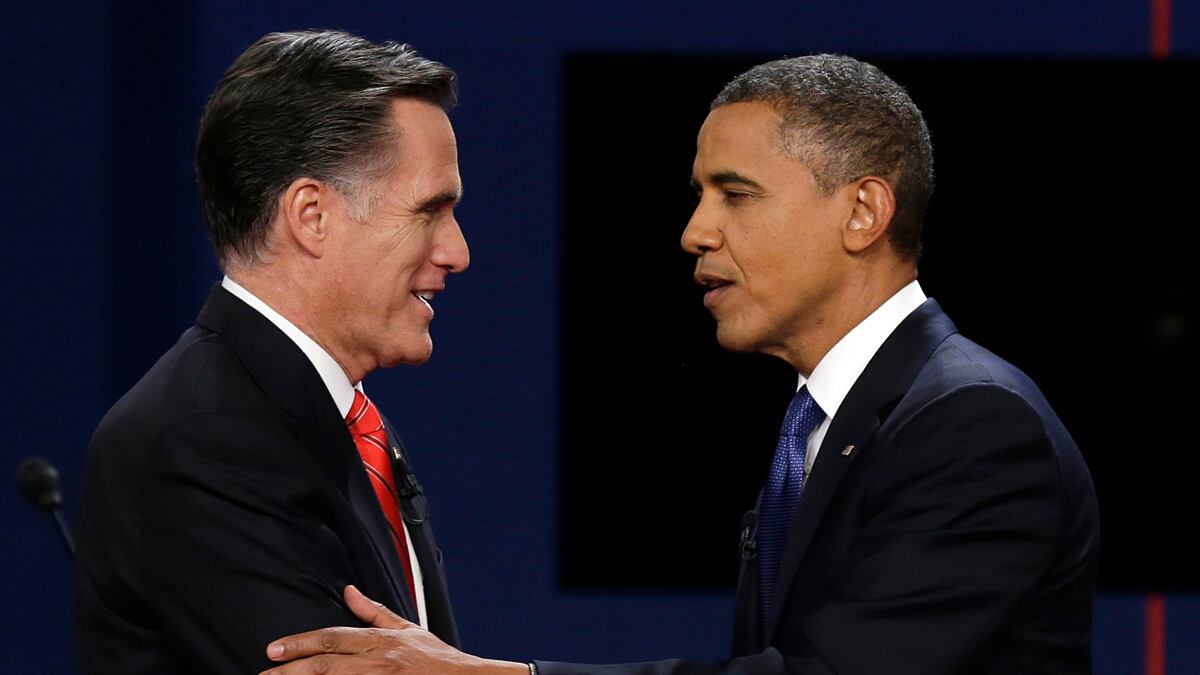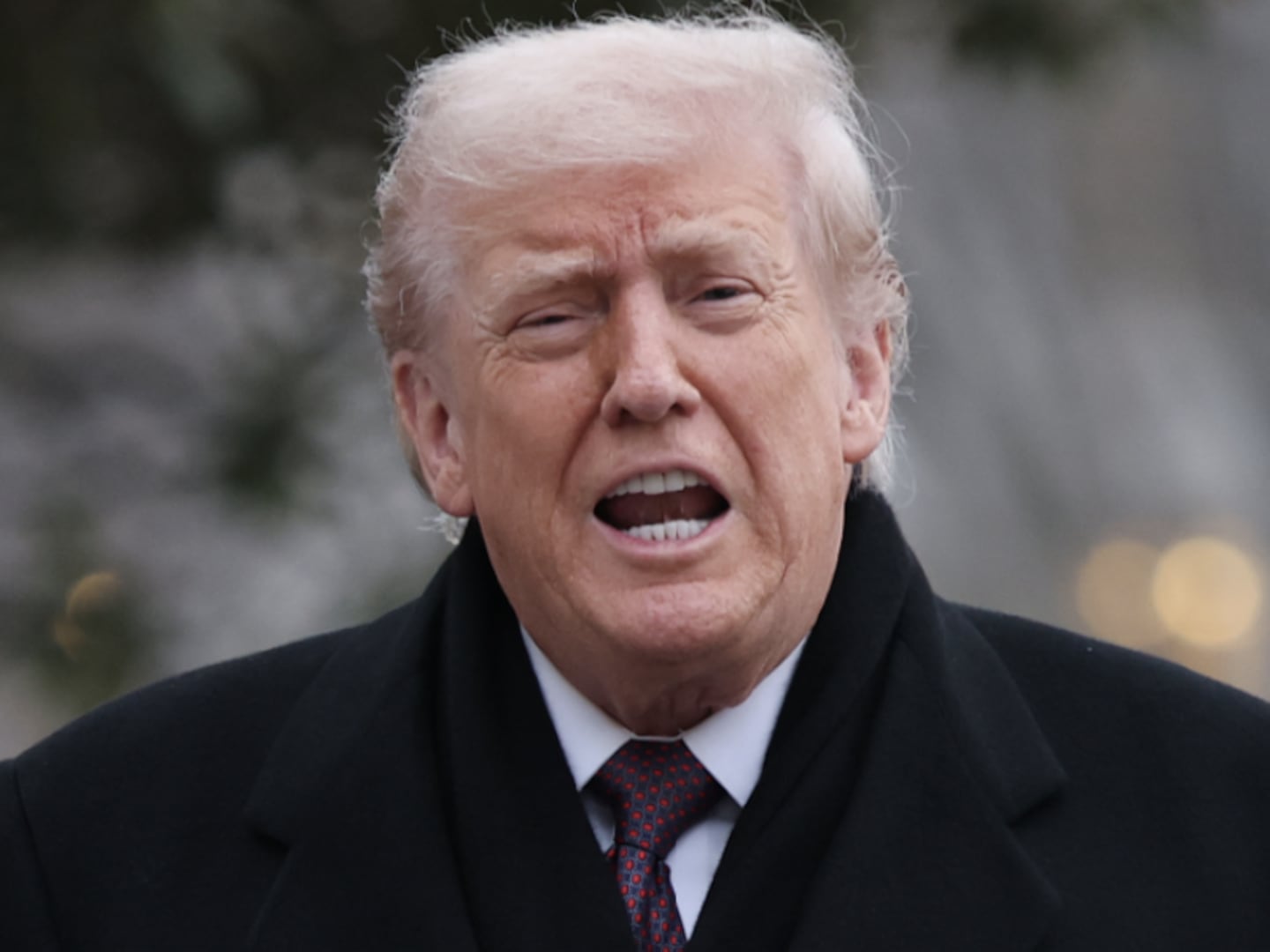Good for Martha Raddatz. In last Thursday’s vice-presidential debate, she served up the first serious, widely watched discussion of the foreign-policy differences between this year’s Democratic and Republican tickets. And in so doing, she revealed what foreign-policy wonks already know. There aren’t as many differences as the two sides would have you believe.

Sure, Paul Ryan tried to sound tougher than Biden on Syria, Afghanistan and Iran. But time and again, when Raddatz and Biden pushed Ryan to explain what he’d do differently, Ryan retreated. The reason is simple: Americans don’t want to start any new wars in the greater Middle East and they want to end the one we’re in. They don’t even want to pay other people to fight them for us. And that’s going to be true no matter who occupies the White House next year.
In the century or so since America became a world power, the big shifts in U.S. foreign policy haven’t occurred because a candidate with a certain agenda won the White House. They’ve changed because circumstances changed at home and abroad. Franklin Roosevelt’s policies were isolationist until German and Japanese aggression convinced enough Americans that the U.S. couldn’t hide in its own hemisphere. Jimmy Carter became a hawk after the Soviet Union invaded Afghanistan. Ronald Reagan became a dove when Mikhail Gorbachev signaled his desire to end the Cold War. Bill Clinton, who came of age loathing the Vietnam War, took advantage of the Soviet Union’s retreat to launch military strikes in Bosnia and Kosovo. When the wars he had launched in Afghanistan and Iraq turned sour, George W. Bush avoided confrontation with Iran, Syria, and North Korea. He even began trying his hand at diplomacy between the Israelis and Palestinians.
Barack Obama has launched some distinct foreign-policy initiatives. It’s hard to imagine John McCain proposing the abolition of nuclear weapons. But in general, his foreign policy has resembled the foreign policy of Bush’s second term because he’s faced the same basic constraints: an exhausted military, less deferential allies, empty coffers and an inward-looking public. Just as Richard Nixon ramped up bombing when Americans would no longer fight the ground war in Vietnam, Obama has turned to drones in the struggle against Al Qaeda. Just as the Nixon doctrine envisioned America’s regional allies bearing the burden of containing Soviet communism once Americans had tired of the job, Obama is trying to get other nations to commit the money and weaponry to solve regional problems while America “leads from behind.”
For all his bluster, a President Romney won’t change this all that much. Sure, Romney talks about boosting the defense budget. But his ideological predisposition matters less than budgetary reality. If forced to choose between increasing defense spending and increasing taxes, he’ll almost certainly pick the latter. Romney might want to put more pressure on Iran, but if he wants to take military action to prevent Tehran from going nuclear, he’s going to have to win over a reluctant public and an even more reluctant military. And it’s unlikely he’ll get the blessing of the U.N. or America’s European allies. Might he still do it? Sure. But when Iran hawks suggest that Romney would respond differently than Obama to the same basic constraints, they’re not making an argument. They’re expressing a hope.
For a century, American foreign policy has gone through cycles. The United States extends itself militarily, gets burned, pulls back (although not necessarily back to where it started), replenishes its energy and resources, sees a threat, sticks its neck out a little, gains more confidence, and then the whole cycle starts again. Nothing is predetermined. But judging from the state of the American military, the mood of American public, the receptivity of America’s allies and even the agenda of America’s presidential candidates, we’re still early in the withdrawal stage.
It’s impossible to know what it will take to undo the hangover from the Afghanistan and Iraq wars. Maybe it will take a return to economic surplus. Maybe it will require the U.S. military having enough time to restore itself after the battering of the last decade. Maybe some frightening event will turn Americans outward again. But whatever it is, it’s unlikely to happen just because Mitt Romney and Paul Ryan win the White House.
When it comes to foreign policy, presidents don’t deal the cards. They play the cards they’re dealt. And regardless of who’s in office next January, he’ll be holding a pair of fives.






